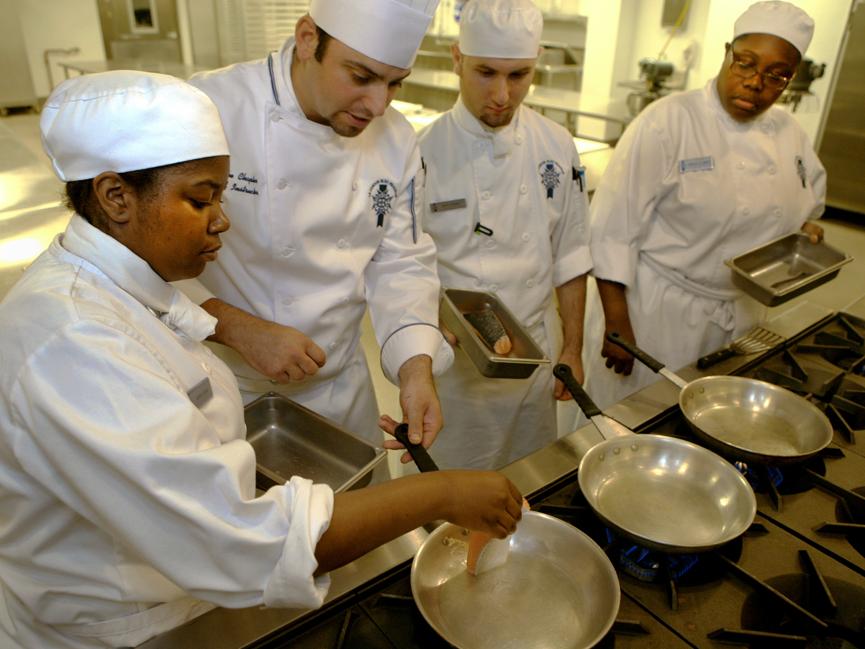
The company that launched 16 Le Cordon Bleu schools in the United States, including one in Cambridge, announced on Dec. 16 that it is closing all of the branches. The last new students will be those enrolled for Jan. 4. The campuses will shutter in January 2017, after all students complete courses.
The for-profit Career Education Corp. of Schaumburg, Ill., which owns the US branding rights for Le Cordon Bleu North America, made the unexpected decision after “advanced negotiations with a potential buyer’’ collapsed, according to its statement.
Le Cordon Bleu, Boston opened in 2008 in the Athenaeum Press Building near Kendall Square. “It has some of the most beautiful kitchens I’ve ever seen,’’ says Louisa Kasdon, a board member, and CEO and founder of Let’s Talk About Food, with “one room for fish, one room for pastry, and so on. It’s a gorgeous physical plant, and I hope they do something wonderful with it for the community.’’ A spokesman said there is no active plan to sell campuses, but any offers would be considered.
Nationwide, 9,200 students are enrolled in programs. As of last year, 474 students attended the Boston campus, with 50 faculty and staff. The school website indicates tuition rates are about $40,000 for an associate degree; and $17,000 for a certificate program. The Boston website states the school is no longer accepting new student applications.
Le Cordon Bleu has schools in 21 other countries, including the famed original branch in Paris, which are operated by Le Cordon Bleu International and are not affected by the CEC closures. The Paris school opened in 1895 and after World War II was accredited by the Pentagon to train ex-GIs. The movie “Julie and Julia’’ chronicles Julia Child’s time at the school in Paris with them.
A year ago, CEC announced plans to sell its US campuses. “Once that announcement was made, they stopped doing maintenance repairs,’’ says a student at the Chicago campus who asked not to be identified. “It felt like things were falling apart, that a brand was falling apart. It upset students and distressed teachers.’’ The student said some classmates were also unhappy because there appeared to be little vetting for admissions. “We had a lot of clueless students.’’
The same student says that the school supplies quality food. “When a recipe calls for foie gras, they give us foie gras,’’ she says. “You don’t feel like you are being given scraps to cook with.’’
But it is the high cost of food, as well as financing and operating expensive kitchens, that are among the reasons CEC cites for the decision to close. (The company is reporting 2015 operating losses, as of September, of $43.5 million.) CEC maintains that new federal regulations inhibit the ability of career schools to manage operating costs. The US Department of Education is tightening rules regarding for-profit schools amid accusations of deceptive enrollment and of misleading students about job prospects.
Peggy Hernandez can be reached at mphernan1@gmail.com.


 PREVIOUS ARTICLE
PREVIOUS ARTICLE